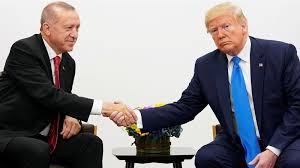It’s unlikely much will change following the attack in Russia as the West prioritizes its Ukraine war to cut Moscow to size. Russian authorities, on their part, prefer to link up the terrorists to Ukraine to intensify the war as summer approaches
by Prasad Nallapati*
The March 22 terror attack on Moscow’s Crocus City Hall, in which over 130 people were killed, has long been in the offing. Russia has known it well but its preoccupation with Ukraine war and US’s role in it made Moscow take the guard off the signals that were coming, even from Washington.
Islamic State’s Khorasan branch (IS-K) claimed responsibility for the attack and released video footage of its gunmen on killing rampage. Russian forces nabbed four of them, all speaking Tajik language, while escaping toward Ukraine border. President Putin confirmed the involvement of radical Islamists but continued to insist on their links to Ukraine.
Information available so far indicate that the ISK’s Tajik unit, Jamaat Ansarullah Tajikistan, has carried out the attack. While the four that were captured are locals, their commander and other supporting elements were brought from Kabul, Afghanistan a few weeks before the incident and left safely ahead of it.
According to a Turkish security official, two of the attackers travelled from Turkey to Russia on March 2 by same flight.
Russia closely monitored ISK recruitment
Russia had been closely monitoring the swelling ranks of the ISK in Afghanistan. It had brought it up in its security briefings with Taliban officials, but they repeatedly discounted it. Taliban’s Foreign Minister Amir Khan Muttaqi rejected as baseless Russia’s allegations of thousands of IS militants gathering in northern Afghanistan.
Col. Gen. Anatoly Sidorov, Russia’s Chief of the Joint Staff of the Collective Security Treaty Organization, said in February 2023 that the ISK’s ranks had significantly increased to about 6,500 as they intensified recruitment from other experienced jihadi groups, majority of them being Tajiks.
Some 4,000 of them were deployed along the Tajikistan’s border in the Afghan provinces of Badakhshan, Kunduz and Takhar threatening stability in Central Asia, he added. The Tajik group, Jamaat Ansarullah, reportedly merged with the ISK in 2017 and was behind the recruitment spree.
Russia had thwarted an ISK plan to attack a Moscow synagogue earlier this month.
No Secret of Russia being one of the Top Targets
The founder of the IS, Abu Bakr al-Baghdadi, in his first speech following declaration of the Caliphate in Syria in 2014, described the world as being divided into “two camps” in irreconcilable opposition to each other: the “Muslims and the Mujahideen” and the “Jews, the Crusaders, and their allies.” The latter, he declared, is “led by America and Russia, and being mobilized by the Jews.”
While the Caliphate and the land it controlled was lost in the international campaign against it in 2019, its provincial branch IS-K remained a potent force with its base in Afghanistan and is fast expanding despite opposition from the ruling Taliban. While its core interest lies in Afghanistan, Iran, Pakistan, Central Asia/Russia and China, its targets include parts of northern India.
Turkey remains IS’s conduit
The ease of passage of the ISK attackers through Turkey from Afghanistan to Russia and back proves Ankara’s complicity in continuing to allow free movement of Islamist radicals. Turkey claimed to have detained over 150 ISK suspects across the country to give a semblance of its seriousness against terrorism but may have long been released. Its anti-terror laws are slack as Jihadis caught in the country cannot be tried on crimes committed abroad.
Turkey had served to be the transit hub of the IS during the height of its Caliphate in Syria-Iraq. Its cadres could take shelter in relative ease, men and arms flowed freely and those injured in fighting got treated. Exchange offices and jewelry shops facilitated wire transfers to their fighters across other battle grounds.
Both its founder al-Baghdadi and his successor Abu Ibrahim al-Hashmimi al-Qurayshi were killed by US forces while being in Syrian hideouts close to the Turkish border under watchful eye of the latter’s military outposts, like the killing of the Al Qaida leader Osama bin Laden in hiding in Pakistan’s military area of Abbottabad.
Isolated for its support to jihadism, Turkish Islamist President Recep Erdogan unleashed his diplomatic charm to regain its preeminent position. He inserted himself to be a useful mediator in various conflict zones including between Russia and the West on Ukraine situation while repairing ties with the Gulf Arab countries. He blackmailed European countries to submit by holding threats of letting through droves of illegal migrants from Muslim countries of West Asia and Africa.
The attack in Russia laid bare Turkey’s real face as the veil came off its continued facilitation of jihadi movements. While pretending to be a promoter of peace among warring nations and thus gaining financial and other benefits, it continued to provide `safe havens’ for IS fighters.
What’s Next
It’s unlikely much will change following the attack in Russia as the West prioritizes its Ukraine war to cut Moscow to size. Russian authorities, on their part, prefer to link up the terrorists to Ukraine to intensify the war as summer approaches, rather than holding Turkey and Taliban responsible. Russia, therefore, remains vulnerable for further terrorist attacks with all its military resources deployed on Ukrainian front.
The US is literally frozen in West Asia as it became incapable of stopping Gaza carnage and the consequent disruption of maritime commerce. Iraq, under pressure from Iranian proxies, has called upon the US to withdraw its forces to from the country. The forces were deployed there to prevent resurgence of the IS in the region
The ISK will only be emboldened by its success in Russa to launch further attacks not only against Russia bult also on Pakistani and Chinese targets in the Af-Pak region. So will be the IS branches in Africa.
There are also serious signs of resurgence of the IS core group in border desert areas of Syria-Iraq. They killed nine soldiers of the Syrian National Defence Force and two civilians near Raqqa on March 24. Eighteen persons were killed in eastern Syria earlier this month and fourteen last month.
Global powers will have to wake up sooner than later to reprioritize their focus on Islamist terror groups that are getting fresh lease of life because of the former’s preoccupation with traditional geopolitical rivalries and Palestinian suffering in Gaza.
(*Prasad Nallapati is President of the Hyderabad-based think-tank “Deccan Council for Strategic Studies” and former Additional Secretary to Govt of India)




